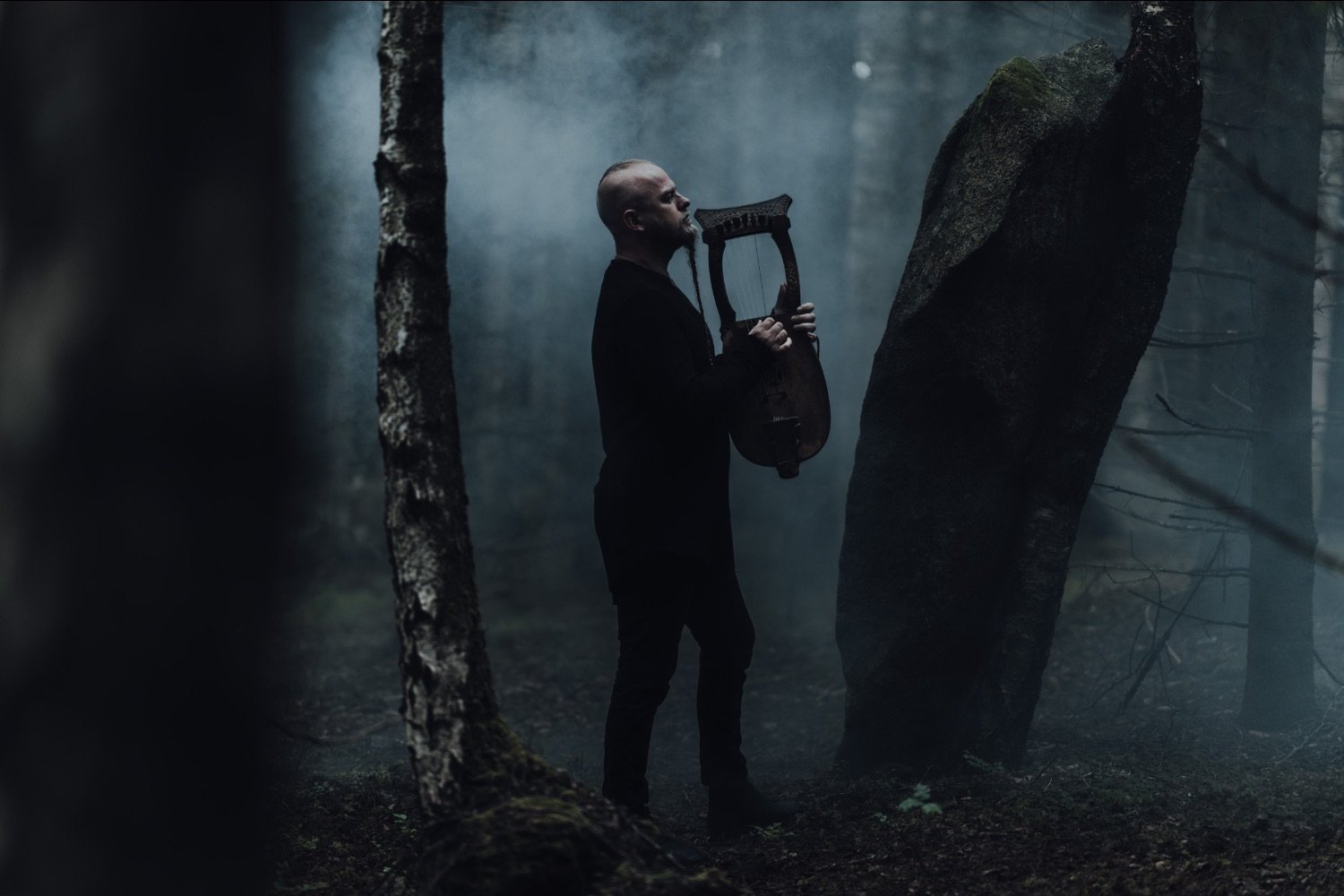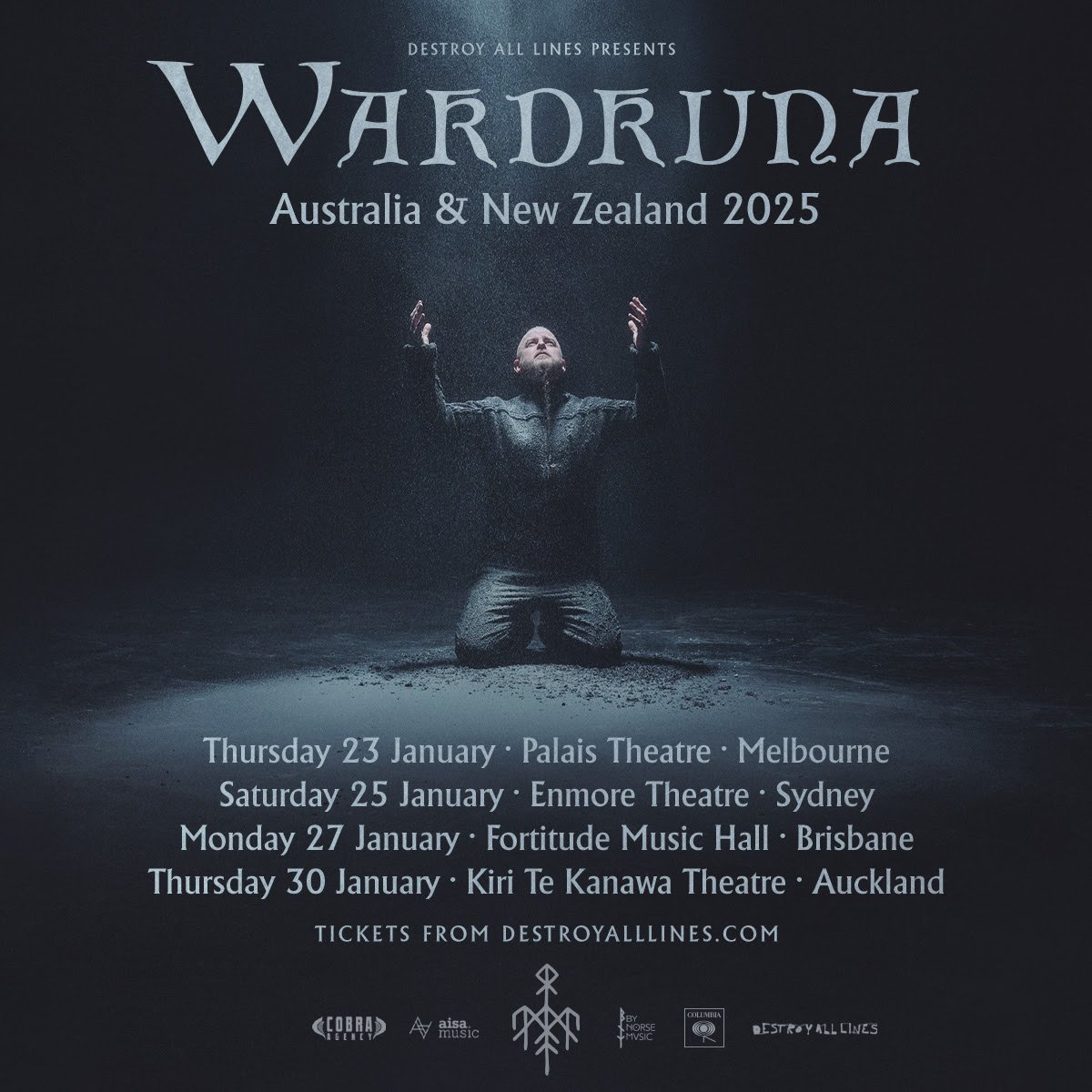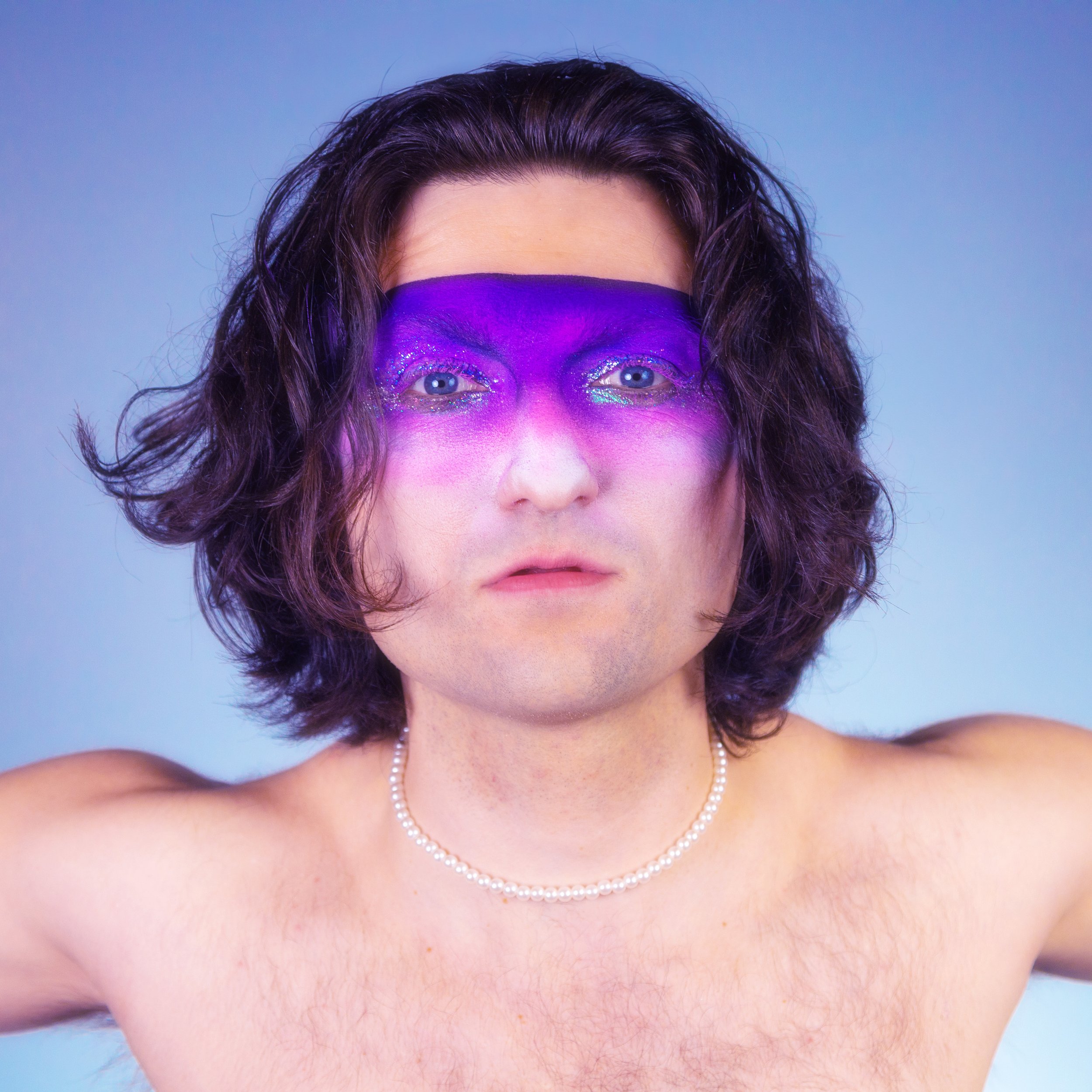The Metal Bar Interview - Riccardo speaks with Einar Selvik of Wardruna - 14th January 2025
/ Megan Moss
Einar Selvik of Wardruna - PHOTO BY Morten Munthe
By: Riccardo Ball
Riccardo and Einar Selvik talk about Wardruna, Einar finding his voice, his cultural connection and being a modern day Viking ahead of his band touring Australia and New Zealand this coming January 2025
Riccardo of The Metal Bar and Einar Selvik talk about Wardruna, Einar finding his voice, his cultural connection and being a modern day Viking ahead of his band touring Australia and New Zealand this coming January 2025
READ THE FULL INTERVIEW TRANSCRIPT HERE
Riccardo: This is The Metal Bar and we are worldwide, we are global going about as far around the globe as you can go before you start coming back all the way up to Norway. And Einar joins us from Warduna. Einar. Hello. How are you?
Einar: Pleasure to meet you, sir. I'm good.
Riccardo: Great to hear, man. Looking forward to having you down in this part of the world. I don't believe you've been to New Zealand before. Have you?
Einar: Not professionally, but actually about 25 years ago, I traveled New Zealand for about six weeks actually. So it's a fantastic country and I can't wait to come back, to be honest and extra special to, to be able to Bring my art down there as well, very special.
Riccardo: What have you got a memories of that time you were here, what was that 99?
Einar: I guess, I was predominantly on the Northern Island traveled a lot around camped stayed in Maraes various places. My brother, he was down there. He lived there for about a year doing building traditional Maori canoes or a catamaran. That was the initial location. But yeah, stunning stunning nature. Beautiful forests like the kauri tree for us and yeah, lots of good memories.
Riccardo: I've done a bit of reading for this interview the way that you, you're in touch with I guess the roots of your ancestors and these, did you see that reflected when you were down here in the Maori culture?
Einar: Absolutely. I would actually go as far as my meeting with, I was lucky enough to be welcomed in several Maraes and partook in quite a few ceremonies and yeah, I got to learn a bit as well And I have to be honest and I think I found a little bit of what I was missing in my own tradition in a way. And that was I would say a big part of of like finally starting to work with Wardruna as well. My meeting with the Maoris sort of made me see basically what I was missing, Because of course, even though, a lot more is preserved, there are so many similarities between a lot of these old cultures so when you’re encountering nature traditions that are, have a closer bond to this was really inspiring for me.
Riccardo: I look at the albums that you've done and the subject matter and things and I know it comes back to the traditions of the original Nordic peoples, right? And their beliefs and things like that. But it also has, and I guess this ties in, from a modern point of view, you look at it and you think it has ties to maybe saving the land.
Einar: It's very much about saving the land and saving the environment and trying to work better with the environment than what people are now. Yeah. In a way definitely seeking connection, seeking these animist ideas that nature is something sacred. Something we're part of, something we should be the caretakers of in a way or at least live in alignment with not only use and abuse. And leave it in a worse state for our children and their children. And I believe that implementing just such a simple idea that nature is something sacred. That's what we need to teach our children. So in a nutshell, my music is, has always been about nature and our relation to it in various forms. A lot of people think it's about Vikings and stuff like that, but it's really not it's the stuff that that created the traditions in the Viking age, perhaps or traces of it there, but it's something that is much, much older.
Riccardo: Yeah. I know you've done work with the Vikings show, for the soundtrack. And so I'm interested to ask you about this because, for a long time when Walking Dead came out, everything was a fucking zombie movie, right? Or a zombie TV show. Then Vikings came out and then all of a sudden everything was Vikings. Some of it was better than others and some of it was. nowhere near close. Where are you on that? If this happened to a Polynesian culture or an African culture or an Asian culture, we might call it that people what are you, Cultural appropriation? Misrepresenting it by taking what they want out of it and then being, doing something different with it. Where are you on that?
Einar: I think I think that the whole wave of Viking age interest has it's both positive sides and negative sides, there are always those who are in it just because it's a hype both on the audience side, as well as the artistic side in all sorts of ways.
And that's, I guess that's a natural thing. Once the wave settles down you, you'll see them both. And in terms of Norse history and traditions I think, One of the positive sides with this massive interest that came is that people, because people here in the North have been a bit scared of acknowledging that part of our history because it was very much misrepresented and misused during the second world war by the Nazis.
So it has been a little bit contaminated in a way. You can say that this. Massive interest helped us take it back a little bit. So I would say that's. That's the positive note at least. But I don't know. I guess that TV show, it's about entertainment predominantly.
They helped illuminate and perhaps, mellow out some of the stereotypes regarding Viking Age. At the same time, they probably created a bunch of new stereotypes as well. So I don't know, it all evens out in the end.
Riccardo: You obviously haven't always done this sort of music, right? You played drums in Gogoroth for a while, you were into black metal and things. So when did you first get the interest for the music that you were doing now? And when did you first discover those roots?
Einar: My interest for these subjects like history and roots and tradition, that's something I've had since I was quite young as a kid. I was exposed to it quite a bit. Also musically, like there was a lot of metal music in my home, but also like traditional music and classical music and, Historical music. But yeah, when I started having the vision of what became Wardruna, that was like, when I was 17, 16, 17 years old or something.
Then I started the first recordings for Wardruna when I was 22, I believe, or 23. When I, Played in Gogoroth and these other metal bands. At that point the metal music was out of my system. Way before that. So that wasn't like a personal thing for me. I guess the need to do something that was more in line with my own personal interest and passion became more and more important. So that's how it started.
Riccardo: Famously, we know about the church burnings in Scandinavia and things like this and for a lot of people, it's a headline, and they react to the headline, but really the Nordic people were colonized as much as the Maori people were colonized or anybody else was colonized. Because all your traditions and roots were cast aside and they built churches on the sites of your temples and things like that. So you lost a lot of that connection.
Einar: Yeah. There's a lot deeper than just burning churches because you hate Christianity or whatever it is. It's as you say, more complicated than just an act of aggression. It has a long history and of course there is the implementation of Christianity when that came about, I would say more or less wherever it came about, it wasn't exactly a grassroots movement. It was something that came from the top and of course, that, that creates, a lot of conflict and trauma.
Riccardo: So this is, in a way what you're doing with your music is you're reclaiming that heritage, right? You're also educating other people, whether they be Nordic or from other places about what the true people of that region are and their beliefs.
Einar: Yeah In a way, but at the same time, I don't like preaching and I don't like I'm not an activist in that sense because I strongly believe that at least for me it was more important to focus on the things that I am for rather than everything that I'm against.
So while I take things from the past. There are many things from the past that definitely belong in the past. At the same time, there are so many things from these nature based tradition that still resonate that still carry the same relevance as they did thousands of years ago. They are timeless. They are as timeless as they are universal. Those are things I want to give voice to because they have a place here. So I just, I give voice to, to it.
Riccardo: It's interesting you, the way you said that we're finding your voice for it, because I did want to ask you, obviously you started your life as a musician, as a drummer. But now you're very much known as a vocalist. So when did you really find your voice?
Einar: Ooh. Yeah, I think it took a while even still like into working with Wardruna it definitely took a while, I guess when I started doing, because I started, I was invited to do lectures and talk about what I did. And then I decided to start doing like acoustics versions of the songs, like with only voice. And a lyre for instance and I guess in that process I started understanding more yeah, and finding my voice I enjoyed singing before, but I don't know, something happened during that process. So it's basically something I've just grown into.
Riccardo: You talk about, listening to a lot of classical music as a youngster, I listen to your music and the way it's composed and the way it's put together, it almost feels classical in that there are movements within each song, in that way, it almost feels classical.
Einar: Yeah, I understand. Yeah and it doesn't follow, this. It's a verse, refrain, verse, refrain kind of structure. It lives its own life. I try to let the songs go where they want to go rather than me forcing them into a shape. So yeah, there are definitely elements that, that that you see in classical music how things are woven together and of course also the soundscape is it's very visual.
Riccardo: Yeah, it is. I think it's perfect example is the theme song or the theme music, from the Vikings show. You listen to one of your albums and it almost, it takes you, maybe not to that show, it takes you to the Fjords or it takes you wherever it, it does capture, it does bring images to mind. I was going to ask you too about the new album, which is out January 24, Burner, which is about the bear, the she bear and that again, ties into what we talked about earlier about mother earth, in a way in terms of your writing, when you get inspired to write, how much of what you're writing is coming from your experience in living today, as a Norseman versus the traditions and the old beliefs.
Einar: It very much depends on what I'm working with, but in this setting, the more I read about the traditions, about the man bear relation, the more I read about the bear itself, like from a scientific point of view, the more I realized that this album needed to have this contemporary focus to be here and now, to be about the bear itself, because it doesn't need our cultural ornamentation to be its own powerful, beautiful self in a way.
And also, just seeing how the rhythm of the bear sort of encompasses the whole cycle of life. It's easy to understand why there are so many traditions, myths, star signs, about this bear. Wherever there are bears on this planet you see them as teachers, you see them as the caretakers of the woodlands, the guardians. I'd rather stay here and contemplate on what it is that created these totemic myths in the first place, rather than just regurgitating the past. Like I said, it all depends on what it is I'm working with, but in, in the, for this album, it is basically just giving voice to, to the bear itself. And then of course I weave into it some parts of the traditional side as well, but there are more in the background and more supporting it.
NZ/AUS TOUR PR
Norwegian collective, Wardruna, will be touring Australia and New Zealand for the first time this month!
Their latest album, Birna, will be released on January 24, whilst in Australia.
As part of their visit to our shores, the group have announced a series of Meet and Greet & Q+A events to take place in every city they visit.
Melbourne, Brisbane and Auckland will be treated to an exclusive Meet and Greet with all members of the group. While in Sydney, the iconic Utopia Records will host an In store signing session.
The Meet and Greet events will feature a live interview with Wardruna’s creator,
Einar Selvik onstage before being opened up to the floor. This is your chance to ask that one question you’ve always wanted to ask!
There will also be an incredibly special and intimate acoustic performance by Einar which will stay with you forever.
Stay Gold - Melbourne
Wednesday, January 22 from 7.00pm
Hosted by PBS FM's Kene Lightfoot of Burning Bitumen
Utopia Records - Sydney
Saturday, January 25 from 12.00pm
Instore signing (free event, no Q+A or acoustic performance)
Outpost Bar - Brisbane
(located within Fortitude Valley Music Hall)
Monday, January 27 from 11.30am
Hosted by legendary radio broadcaster Costa Zouliou
Tuning Fork - Auckland
Wednesday, January 29 from 7.00pm
Hosted by legendary radio broadcaster Riccardo Ball
Wardruna’s brand new album, Birna will be released on Friday, January 24th 2025 and will be available for purchase at all events. Be one of the first in the world to secure your copy and also have it signed by the band! Photo opportunities with all members of Wardruna will also be possible for all attendees of both the Meet and Greets and the In-store.
Tickets are strictly limited and are expected to sell out quickly so get yours now at
Wardruna.com

WARDRUNA NZ/AUS TOUR PR 2025





















































































































